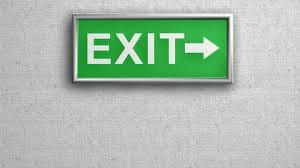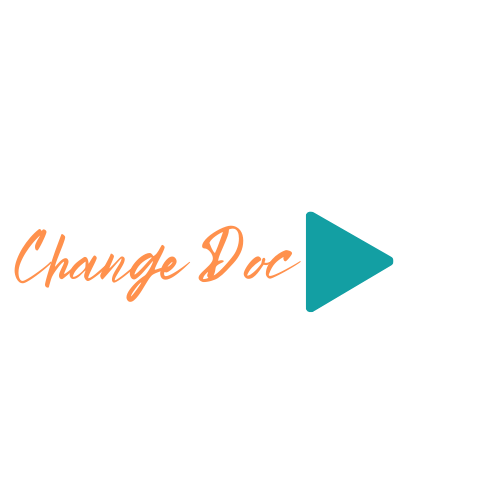Are you ready to quit? If so, stop! Before taking any action, there are four things to consider.
Common Generational Experiences.
During everyone’s lifetime, there are a handful of experiences you share with your country and/or the world that will always be remembered. Such experiences change who you are, how you think, and what you feel.
The Great Depression. World War II. John F. Kennedy’s assassination. September 11, 2001. Ask anyone who has lived through one or more of these events, and undoubtedly they are able to recall vivid details decades later because of the significance and impact on their lives.
The same is true of Coronavirus (COVID-19).
And because so many people around the world are being impacted – directly and indirectly – it is causing significant changes to every day life and routines.
Pandemic Lifestyle Changes
How we communicate with loved ones to how we shop for groceries to how and where we spend time and money…everything is different. These major lifestyle shifts during COVID have pushed many into deep reflection about how they are living and what they value most.

Repeatedly, friends, colleagues and acquaintances are asking difficult, existential questions like “”Who am I?” “Am I happy?” “What is my greater purpose?” “What values do I want to live by?”. “Should I stay at this job?” This latter question reflects how central meaningful work has become for so many people- taking up the majority of time and energy.
Not surprisingly, contemplating quitting comes with tons of guilt for many reasons.
You’re probably thinking something along the lines of “we’re in the middle of a pandemic for goodness sake and I should be grateful for a paycheck when so many are without”. And that is very true.
On the other hand, it is a miserable existence to have to show up for work every day to do and be something you no longer enjoy. So, what does one do?
Related Post: 4 Tips for Changing Careers. Or Not.
I am a strong advocate for people being able to make whatever choices they want for themselves and their families, as long as it doesn’t intentionally harm others or break the law. So, before you quit your job, here are four must do’s:
1. Be clear about your reason for quitting.
- Make sure you have a clear understanding of why you want to leave your job. It’s not enough to know that you don’t like it.
- Not liking it is an emotional reaction.
- You will need to do some soul searching to get to the source of that dislike and to identify what is really causing your desire to leave. Are you bored with the work? Does the organizational culture conflict with your values? Do you not respect your colleagues or boss? What would need to change at your current job for you to want to stay?
2. Establish financial security.
As human beings, we need security which comes in many different shapes and sizes.
Before quitting your job, make sure you have a solid means of supporting yourself (and your family) for the time period you plan to be out of work.
If your job is your sole income source and you don’t want or can not afford to be without a paycheck for long, then your best option is to look for and find another job before quitting your current one. This way your income stream will not be broken.
Alternatively, if you plan to take time off from working altogether, then you should make sure you have either saved enough money or set up alternate streams of income to cover your living expenses for the time period you plan to be out of work.
And since life and the job market can be unpredictable, it would be best to save 1.5x – 2x the amount you believe you will need so that you are able to cover any emergencies or unanticipated costs that arise. For example, if your monthly expenses are $5000 and you plan to be out of work for 6 months, before you quit your current job you should save $45,000-$60,000 ($5000x6monthsx2).
For more information, check out 12 Signs Your Financially Ready to Quit Your Job.

3. Have a post-quitting plan.
It would be unwise to quit your job without knowing what you’re going to do with your time and energy when you no longer have to work every day.
If you immediately start working somewhere else, then that is your plan. However, if you are taking time away from employed work, then you should proactively determine how you will spend your time, what other goals and objectives you will pursue (i.e., spend time with family, travel, plant a garden, start an online business, etc.).
Sitting on the couch bingeing Netflix and eating potato chips is not a good post-quit plan.
While there is certainly a time and place for relaxing with entertainment, research shows that a lack of active, meaningful engagement can lead to quick physical and psychological deterioration. And you definitely want to avoid that.
4. Act responsibly.
- It can be so tempting to throw caution to the wind when you are considering orhave already made the decision to leave your job.
- Things at work that previously were mere minor irritations, now literally aggravate you to no end and make your skin crawl.
- It makes sense that now that you mentally have one foot out of the door, your tolerance level for the current work environment will be significantly lower. Yet, despite this, you will want to act responsibly, for yourself and your family but also for the organization you will be leaving. Don’t let your temper or lack of patience jeopardize your professionalism.
- And don’t allow your eagerness to depart force you to sever ties with your job and/or your paycheck before you are fully ready and prepared. Be thoughtful about your approach and take into account the long- and short-term impacts before you act.
Final Thoughts.
These four “must do’s” should serve as your guideposts as you contemplate and plan your “I Quit” approach. And finally, make sure that you are not running away from something, but rather that you purposefully run towards something you want or value even more.

